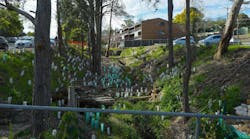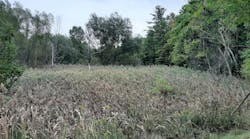Five Easy Resolutions for 2005
Whether you’re the kind of person who scoffs at New Year’s resolutions, or whether you faithfully make (and perhaps even keep) them every year, I have a few suggestions for 2005. These aren’t the usual time-consuming or career-changing “professional development” sorts of resolutions people usually make, like getting a professional certification. They’re activities you might already be doing-but if not, they can shift your perspective on your work in small but useful ways.Take a look at some new products. There are new ESC devices on the market constantly-some disappear rather quickly, and others become industry standards. Just as surgeons, carpenters, and gourmet cooks have dozens of specialized tools for the job, so too are ESC specialists finding more to choose from. Rather than completely replacing the old standards you’ve grown used to, many of them can fit the bill for very specific applications. Take someone to a work site who might not otherwise go. In the same spirit as “take your child to work”day, stop and point out to someone-your child, your neighbor, your golf partner, or anyone working outside the field-the erosion and sediment control measures on a job site. It doesn’t have to be one you’re working on, maybe just one in the neighborhood. Chances are they haven’t paid much attention, but they might have wondered about the black fabric fence or the strange-looking bundles of fiber coiled around a drainage inlet. Once they know what those things are for, though, they’ll start to see them everywhere, and to think about why they’re in place. (And even to notice when they’re missing.)Take a class in something you don’t know much about. County extension offices, soil and water conservation districts, and IECA chapters have much to offer, and in addition to continuing education or certification in your own field, it pays to spend a day or two taking a class in something a bit outside your realm. If revegetating a site is not something you normally deal with, for instance, a session with a county extension specialist on landscaping or native plants will give you a greater appreciation for the work that comes at a different stage of a project than your own. And, as with the outsider who starts to spot silt fence everywhere once you’ve drawn his attention to it, you’ll begin identifying plants whose names you never knew and spotting snow mold on the grass.Attend local planning meetings. If your area is launching a stormwater utility, revamping local building ordinances, or even has a local citizens’ group starting a watershed protection group-and if you’re not already involved in some of these public meetings-drop by occasionally. They’ll be glad if you’re willing to volunteer your expertise, but even if you go simply as an observer, it’s useful to hear what the local concerns are and what the general level of understanding is of ESC and watershed issues (often surprisingly sophisticated). Hike the watershed. Or, depending where you are, perhaps it’s more of an urban stroll than a hike. Many of us know the local topography intimately, but if your work hasn’t recently led you to trace the drainage patterns or take an up-close look at what’s happening on the ground, it’s eye-opening to do it on your own. The concerns ESC professionals deal with every day are, by their nature, more closely connected to the local conditions-physical, economic, and social-than those of most other jobs. Reconnecting in small ways with different aspects of the profession, and with things going on in the community that are affected by what we and our colleagues do, is a good at-least-once-a-year reminder of why we do it.

